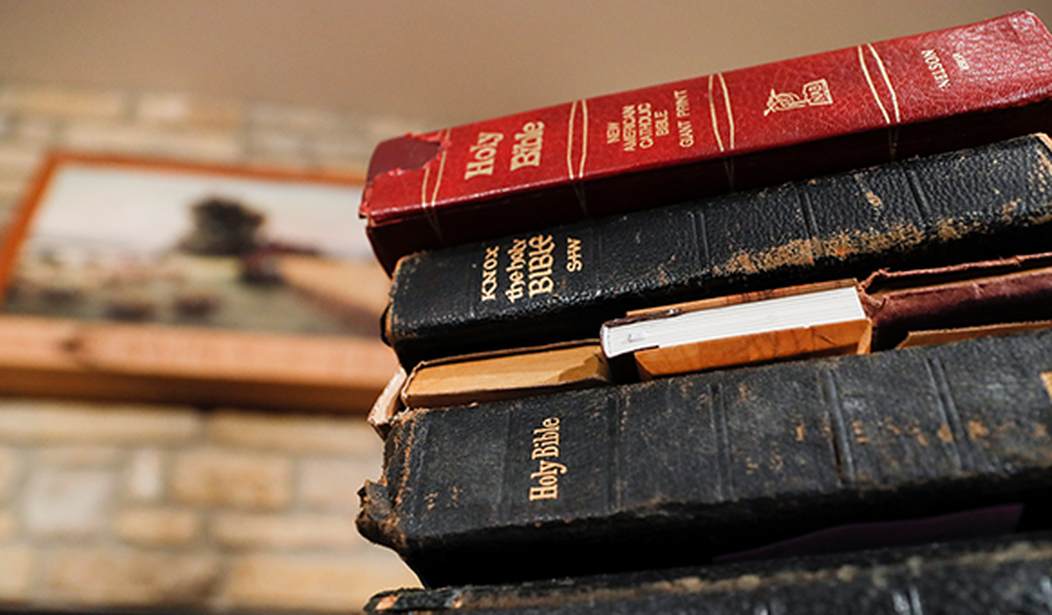The topic of God is among the plethora of topics that I’ve enjoyed discussing over the last few months with a new friend of mine.
She has only recently attended to the question of God’s existence. Up to this point she had been, if not an avowed atheist, then an agnostic who, as such, was an atheist in practice. Today, though, she has concluded that God does exist. However, as to what else this entails, it’s clear that she is still very much uncertain.
It also appears that she is certain that she will remain uncertain. “We can’t ever be sure,” she remarked as we discussed God’s existence, His nature, and the diversity of belief concerning these matters. “But how,” I responded, “can you be so sure that we can never be sure?”
What folks like my friend fail to realize is that for as innocuous as such a claim as this appears on its surface, it actually expresses a controversial philosophical position.
And this position, in turn, reflects a worldview, a metaphysic—a theory of what’s really real—and an epistemology—a theory of how we can know what’s really real.
It’s true that absolute certainty on these matters isn’t likely to be attainable in this life. No Christian, Jew, Muslim or any other monotheist could believe otherwise, for absolute certainty precludes faith. After all, no one would ever claim to have “faith” that 2+2=4, for this mathematical proposition (by and large) is regarded as a certitude.
This being said, the following points should be kept in mind:
(1)Terms like “absolute certainty” and “faith” possess some measure of elasticity. There’s a sense in which, arguably, there is nothing of which we can be absolutely certain. The world that we take for granted, or what philosophers have called “waking reality,” could be a dream, a video game, or a matrix.
Recommended
And there’s certainly no way to be unconditionally certain that reality is rational, orderly, accessible to our minds.
There could, in other words, be a sense in which it is by “faith” that we accept these assumptions.
It is by “faith,” it could be said, that scientists accept the principle of induction (the principle that nature is self-continuous, that the future will resemble the past) and the principle of universal causation, for neither of these is an object of scientific discovery but, rather, presuppositions of scientific inquiry without which no discoveries would be possible.
(2) “Faith” is not, as many seem to think, tantamount to irrationality. It does not require a “blind leap.”
Neither the Bible nor the Church for much of its history viewed faith as anything other than a source of knowledge by which reason is at once supplemented and perfected. For that matter, Judaism and Islam as well largely shared this vantage.
Faith encompasses trust and hope. As such, faith is and can only be a virtue peculiar to a personal, or an inter-personal, relationship. Faith is always faith in a person.
To repeat, however fashionable it may be, all contemporary talk of placing faith in, say, the universe isn’t universally recognized as the patent nonsense that it is only because it has the effect of imbuing the universe with the qualities of a person.
Now, there may actually be some sense of speaking of faith in the universe, but only if it is assumed that either: (a) the universe is a person of some sort; or (b) the universe is the handiwork of the person, or persons, that are responsible for its existence, and, so, it is actually the architect or architects of the universe in whom faith is deposited.
In either case, faith in the universe, like faith in any person, is by its nature both rational (even if misconceived) and based upon the assumption that the object of faith is good and trustworthy.
It is faith that sustains all human relationships, and none more so than those—the relationships between lovers, spouses, friends, parents and children—without which our lives would fail miserably to be as fully human as they are for them. Only if these relationships are themselves chimeras—as they must be, if the atheist is correct and the world is a brute, cosmic, value-free accident—can the faith that they require be ultimately irrational.
From a cold, value-less, ultimately meaningless universe, warmth, value, and meaning could not spring. To suggest otherwise, one may as well suggest that from nothing, comes something. If there really is intelligence, beauty, goodness, faith, hope, and love in the world, then the Ground of the world’s existence must be intelligent, good, loving, and deserving of faith and hope.
So, in response to my friend—and to all skeptics concerning the possibility of knowing God and His nature—I say simply:
Look around.
Look within.
The proof has been staring you in the face, as omnipresent as God Himself.
It is among you.
We’ve only failed to recognize this for the same reason that a fish fails to recognize water: The proof is ubiquitous.
Even if, then, we can’t be absolutely certain both of God’s existence and His personal, His supremely personal nature, we can just as definitively claim to know it as we can claim to know—despite lacking absolute certainty—that we are awake and living in a universe to which our minds have access.
























Join the conversation as a VIP Member